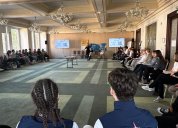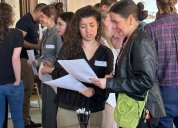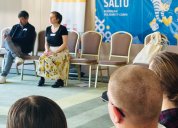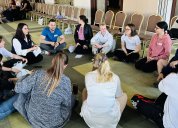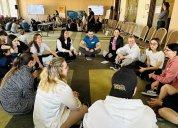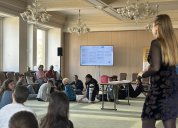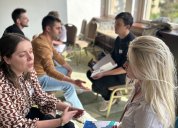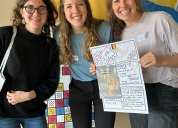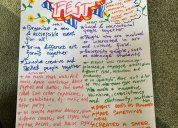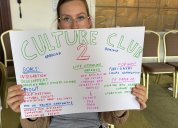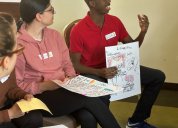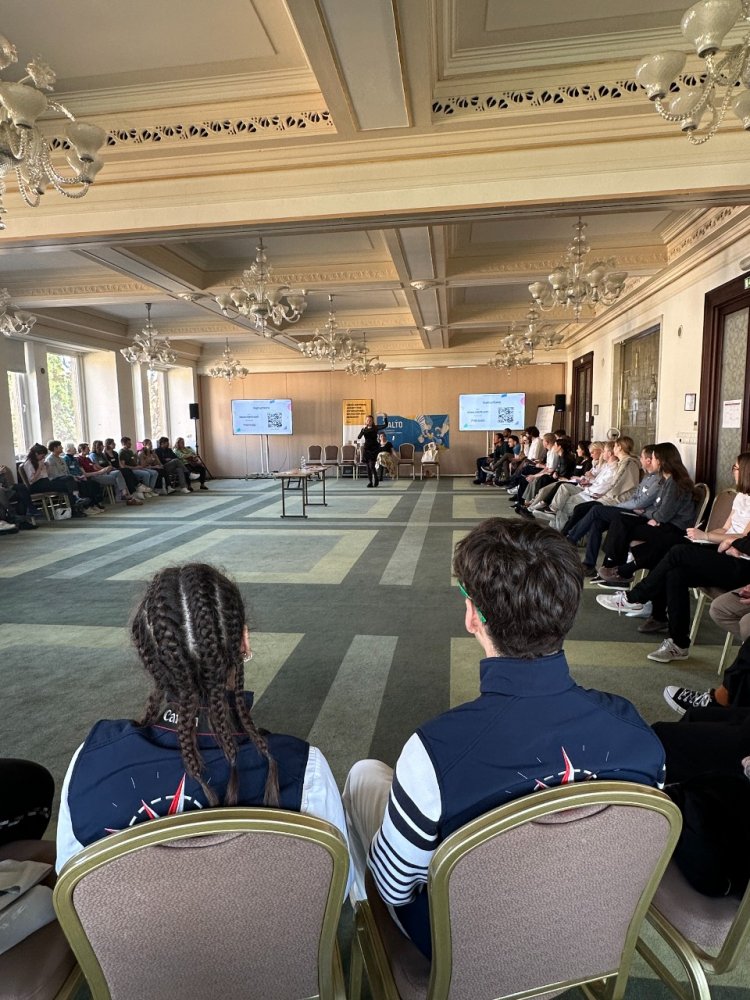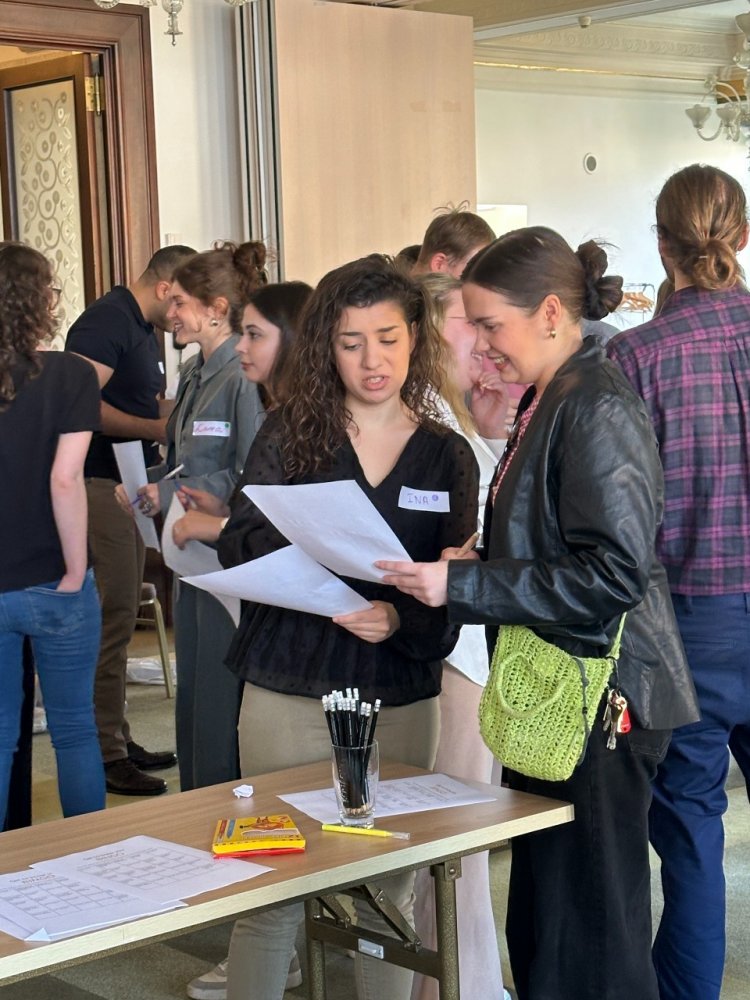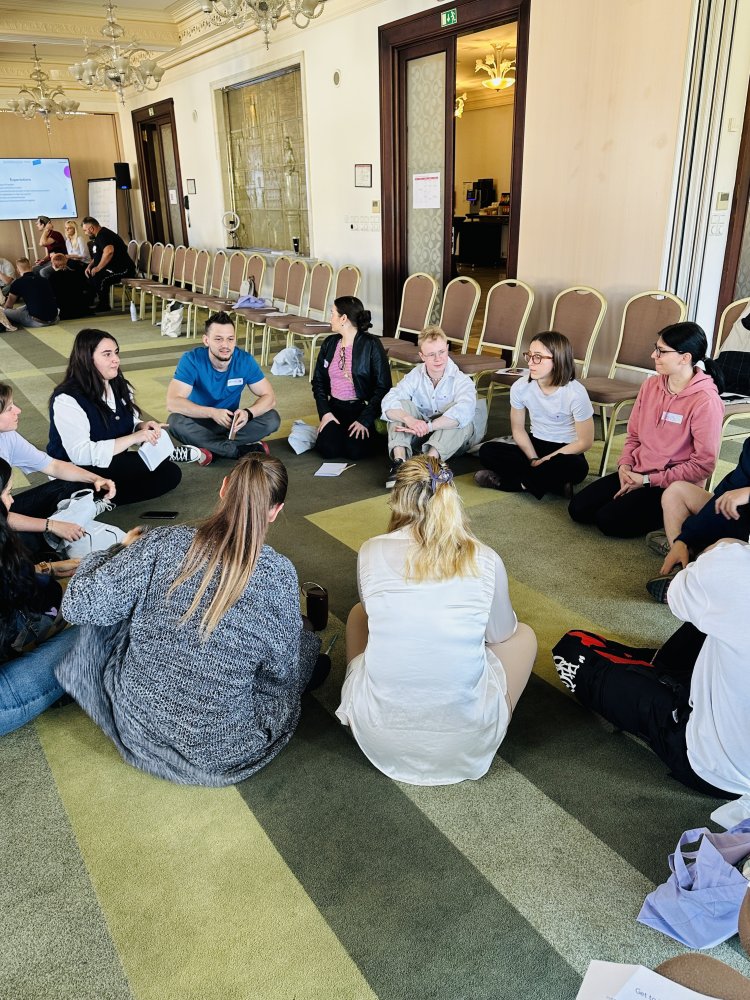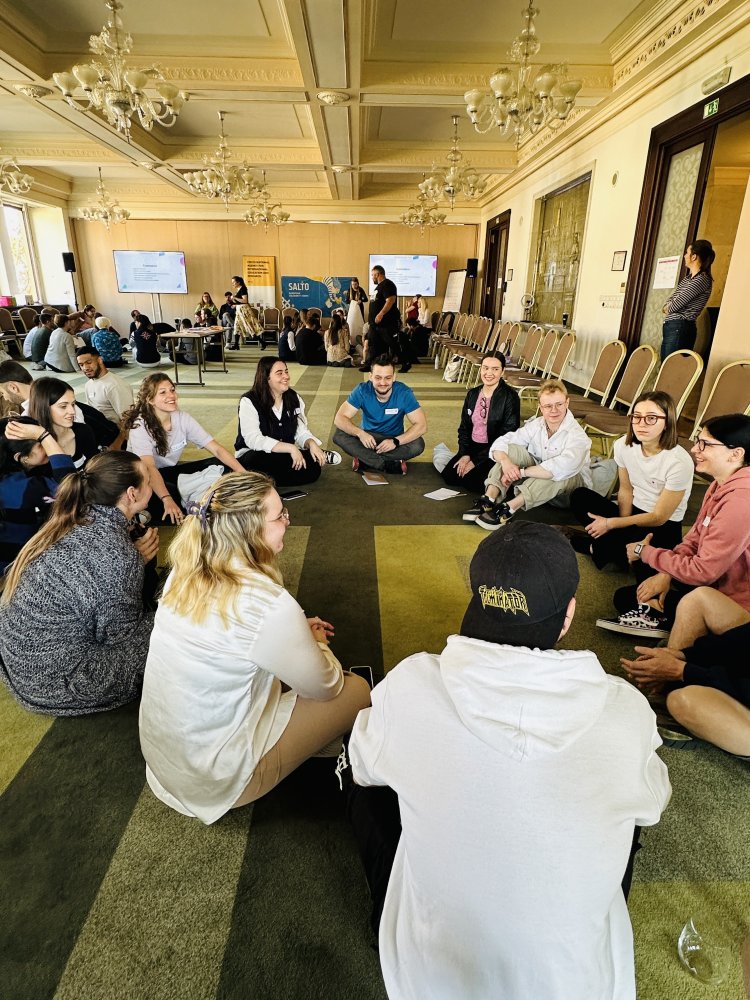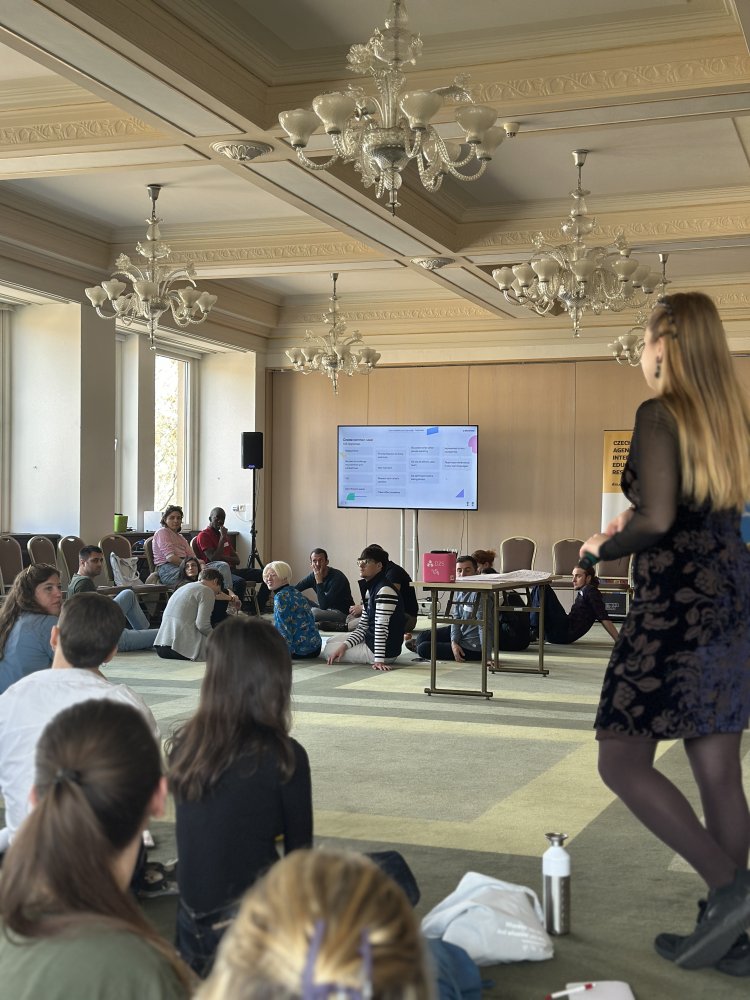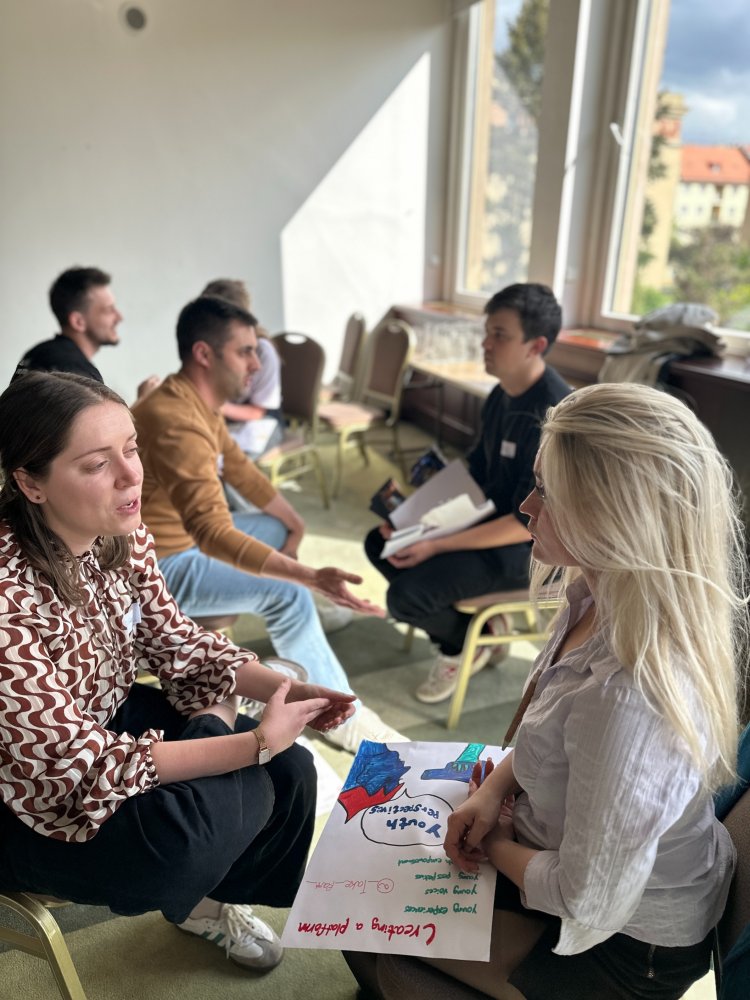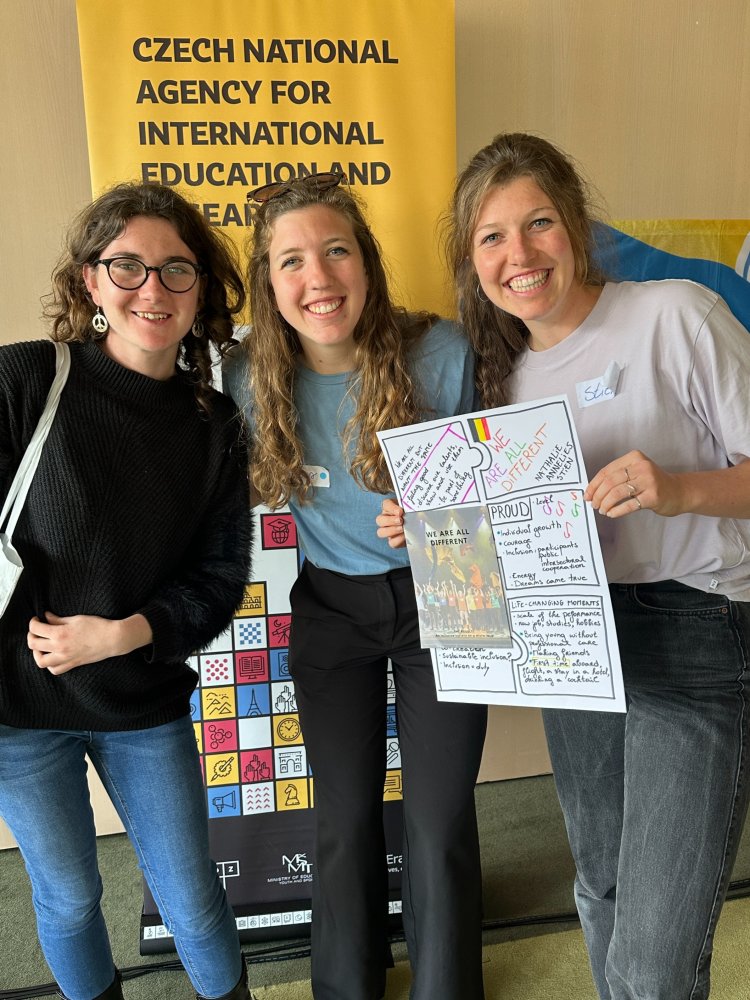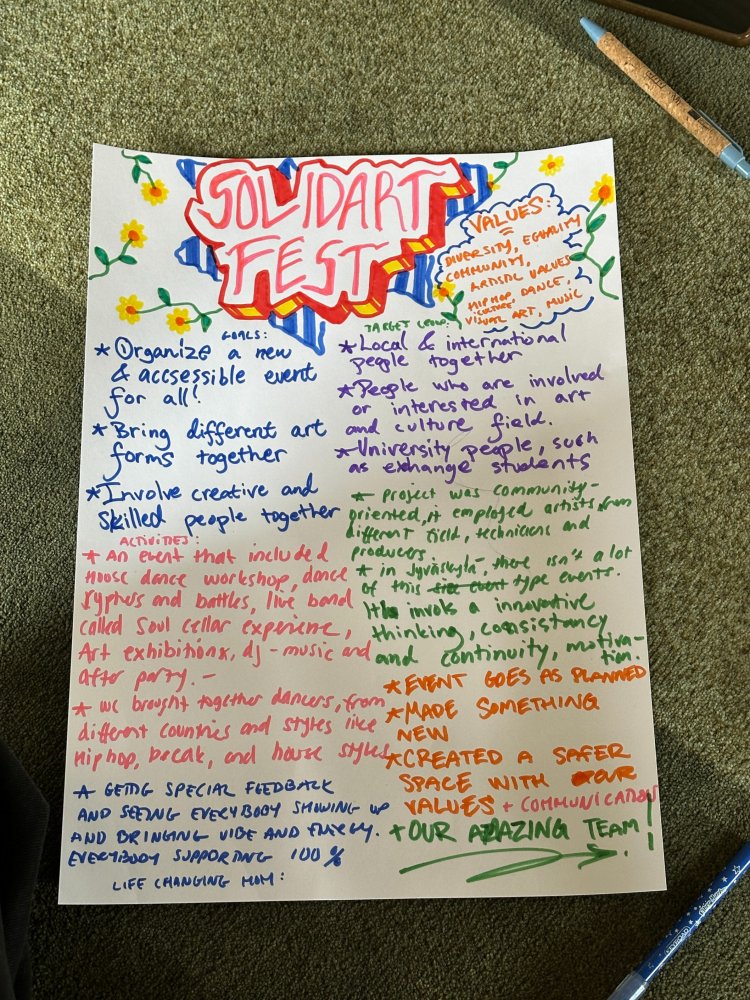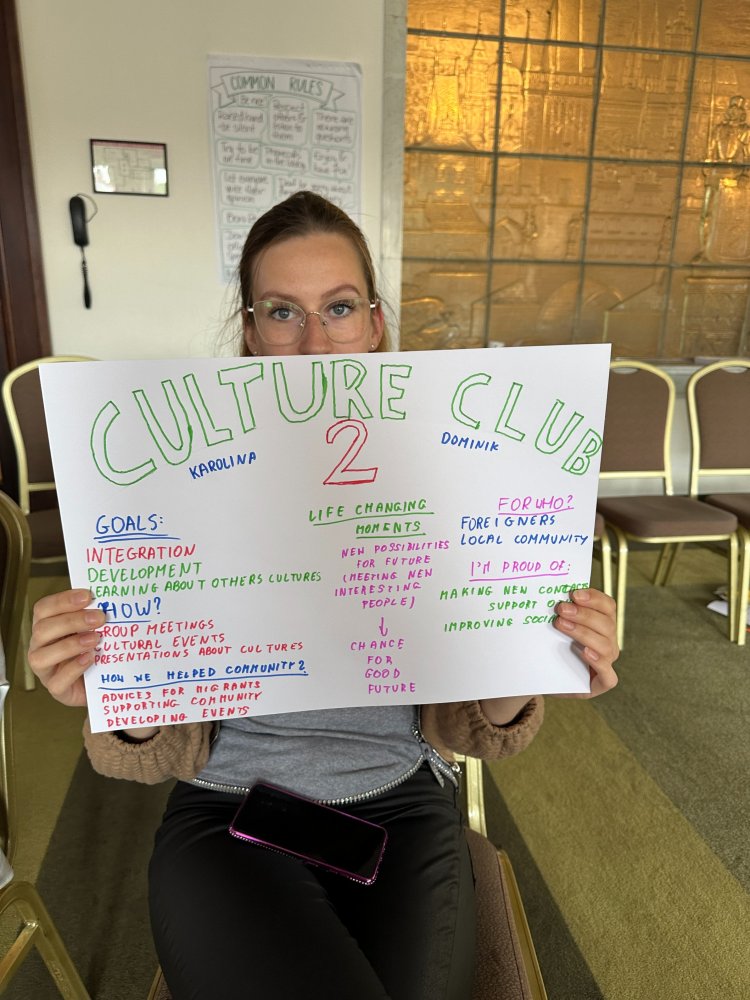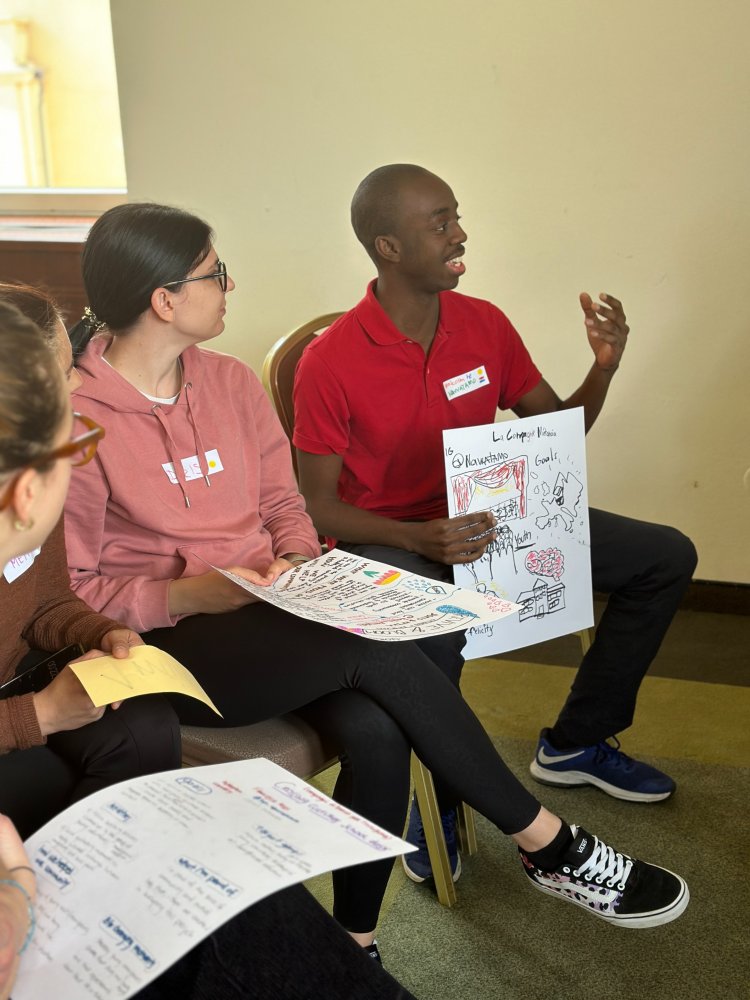International Solidarity Project Meet-Up: Active Youth Share Successes and Challenges
The meeting brought together 56 participants from 22 countries and allowed them to gain inspiring experiences and new contacts.

Last week, from 16 to 19 April, we welcomed young committed people from different parts of Europe. They came together in Prague to share their project management experiences, inspire each other, celebrate their successes and use the time to network. Participants got to know each other through many workshops, group discussions and informal activities, including a city tour and learning about Czech culture. "The meet-up clearly exceeded our expectations, especially with the active approach of all participants. It was an example that local projects have an impact and contribute to positive change in the place where they are implemented," says the organiser Marie-Magdalena Žabková from DZS, the organiser of the meet-up realised in cooperation with SALTO European Solidarity Corps and the Finnish National Agency for Education.
Personal and professional benefits
The European Solidarity Corps enables young people aged 18 to 30 to respond to their local community and make a positive difference through projects. The fact that the range of projects with a solidarity dimension is truly diverse was confirmed by the meeting of dozens of team members across many countries. Implementers shared their experiences of making various documentaries, creating platforms to support disadvantaged groups, thematic expeditions for people with disabilities and many other inspiring implementations.
A beneficial moment of togetherness for the participants was not only sharing best practices in project management, but also their motivations, challenges and coping with the more difficult phases of projects. "As a coordinator of the Outlet Clip project, I learned that being a leader is different from being a boss. While being a boss means giving out tasks, a leader, on the other hand, listens. And yes, sometimes they have to take the lead and act like a boss," explains Xueli Abbing, who serves as a UNESCO Goodwill Ambassador for the fight against racism and discrimination. And because she knows from her own experience the obstacles that disadvantaged groups face in the Netherlands, she decided to lead a project to build a platform to spread the stories of people from disadvantaged communities. She sees her participation in the international meeting in Prague as partly a step out of her comfort zone. On the other hand, it is a great opportunity for her to communicate in English, gain good practice and meet a lot of interesting people.
Solidarity projects as part of the international community
Implementers of solidarity projects reflect on the causes of the difficulties in their neighbourhood and address them at regional or national level. However, it is important for young creators to know that they are part of an international community. Meet-ups like this one allow them to do that. "I think it is important for the impact of solidarity projects to see that they are also international. That they are part of something bigger - it's about the community, and when they come together they can also find out what others are doing, what the challenges are, and learn from each other. Because pear to pear interaction is very important. And for them to recognise themselves as experts in their field," stresses Miguel Tabera from the European SALTO network.
Organising international meetings to spread motivation and good practice is also important, according to Kati Inkinen from the Finnish National Agency. Especially during European Youth Week, during which events are held across Europe to encourage young people aged 16-35 to become active citizens. "Solidarity projects are perhaps smaller grant funding in European programmes. But they are big just for what they do; it's like acting with the heart. I believe that connecting people adds value to the actions that young people do. They also provide more visibility, especially now during European Youth Week. We should take a moment to look at what is happening in young people's local communities, what steps they are taking to improve mental health, what environmental issues they are concerned about and so on."
A similar meeting of solidarity project implementers also brings potential for future cooperation and dissemination of best practices. At the same time, the implementation of such activities is only one of many opportunities in the family of European programmes that can lead young people to self-realisation and positive influence on society.
